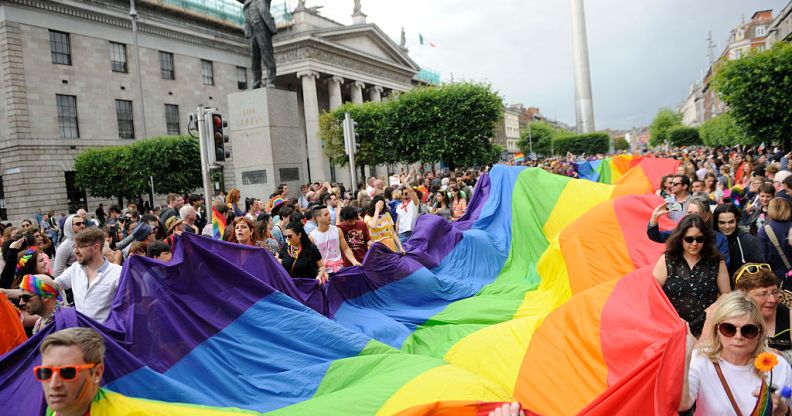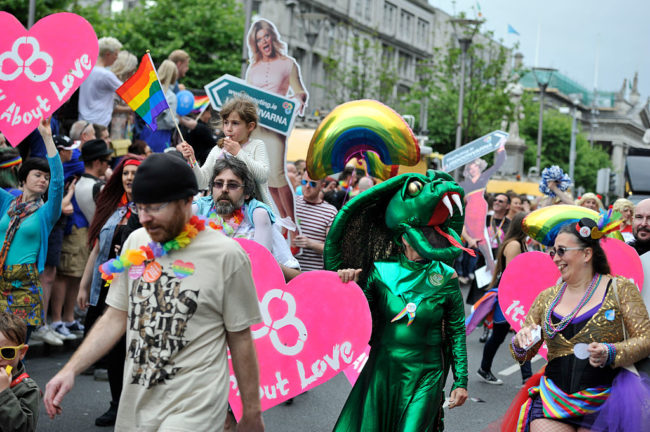One in three LGBT people threatened with physical violence in Ireland

The research was conducted as a part of the Call It Out campaign (Clodagh Kilcoyne/Getty)
One in three LGBT+ people in Ireland have been threatened with physical violence and one in five have been punched or physically attacked in public, new research has found.
Despite this, just a third of those who took part in the research said they believe LGBT+ people in Ireland are at serious risk of violence.
Meanwhile, the research also found that 80 percent of people believe that LGBT+ people should be free to live their lives as they see fit, according to The Times.
Most of those who took part in the research also said they had a high level of comfort with having LGBT+ neighbours.
LGBT+ people continue to face hostility four years after Ireland’s marriage equality referendum
The research was conducted for the Call It Out campaign, which is a joint initiative of the Transgender Equality Network Ireland (TENI) and the Hate and Hostility Research Group at the University of Limerick.
The campaign is set to be rolled out across billboards, social media, radio and regional events in an attempt to get the wider public to support the LGBT+ community when they are faced with violence.
“Because of the ‘yes’ marriage equality success, there is a consensus that homophobia doesn’t exist in Ireland any more—and it very much does.”
– Broadcaster Brendan Courtney
Openly gay broadcaster Brendan Courtney is involved with the campaign and said: “Because of the ‘yes’ marriage equality success, there is a consensus that homophobia doesn’t exist in Ireland any more—and it very much does. We still experience it on a day-to-day level, whether it’s at school or at work, in the street or at night.”

Clodagh Kilcoyne/Getty
Transgender man Cameron Keighron received death threats after posting on social media about his transition
Meanwhile, a transgender man called Cameron Keighron, who also took part in the campaign, said he received death threats online after he began transitioning.
“You just don’t understand why someone has so much hate for who you are and for what you identify as, that they wish that you weren’t breathing any more. In that moment I felt pure fear and nothing else,” he said, according to The Irish Times.
Same-sex marriage became legal in the Republic of Ireland after a 2015 referendum. However, gay and bisexual people in Northern Ireland still do not have the right to marry.
A march took place in Belfast on Saturday (May 18) calling for Westminster to introduce same-sex marriage to Northern Ireland, which remains the only UK territory that does not provide access to marriage for same-sex couples.

